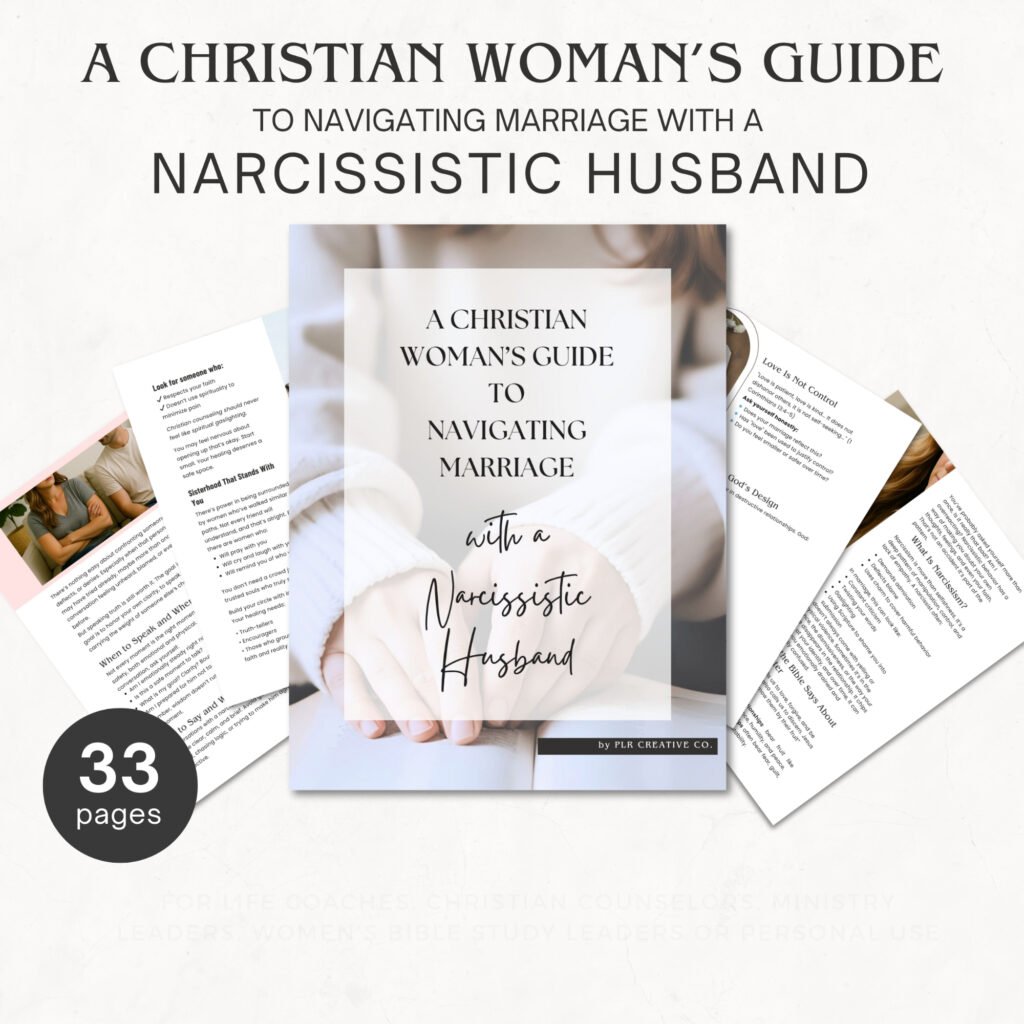There’s a quiet pain that comes from loving someone who can’t love you back in healthy ways. As a Christian woman, marriage isn’t just about happiness; it’s about faith, hope, and trust. But what do you do when your husband seems to take from you without ever giving back?
If you’re married to a narcissistic husband, you probably know that weight already. It’s confusing, heavy, and deeply personal. My hope is that you’ll find faith-filled support, real encouragement, and some next steps you can take when you feel alone or overwhelmed.
Recognizing Narcissistic Traits in a Christian Marriage
Sometimes it feels impossible to spot narcissism, especially when you want so much to see the best in your husband. I remember the questions that kept me up at night. Is it me? Am I not kind enough, or forgiving enough? These doubts just add to the storm inside.
Common Signs of Narcissism in Husbands
A few traits show up over and over:
- He needs constant praise but rarely gives any back.
- Everything revolves around his feelings and needs and yours are invisible.
- He denies, blames, or twists your words every time you confront bad behavior.
- He never seems wrong and rarely apologizes. If he does, it’s shallow or forced.
- Your memories of what happened don’t match his stories. Gaslighting makes you question yourself.
If any of this feels close to home, you’re not alone.
How Faith Can Complicate Recognition
Our beliefs in grace, forgiveness, and enduring love can actually make it harder to see what’s happening. I was taught to forgive seventy times seven, but I wasn’t taught what to do when my own heart broke that many times.
You might try to “pray it away” or hope patience will fix everything. Sometimes, faith makes us second-guess what we know deep down.
The Impact on Faith and Self-Esteem
A marriage like this starts to eat at your soul. I know how it feels to pray for change and wonder if I’m just being selfish. Narcissistic behaviors slowly erode how you see yourself and how you see God.
Experiencing Spiritual Manipulation
It’s easy for a narcissistic husband to twist scripture or faith ideals to protect himself. He might say you’re not submissive enough or that questioning him means you’re not a good Christian wife. That always cut deeper for me than a regular argument. It’s not just controlling; it’s spiritual confusion.
Dealing with Guilt and Shame
Guilt and shame become constant companions. You might feel guilty for having boundaries or ashamed for not feeling happy in your marriage. This weight can keep you silent. You need to know these feelings don’t come from God.
Setting Boundaries with Love and Wisdom
I believe boundaries can be holy. Yes, even Jesus set boundaries with people who tried to use or harm him. You deserve emotional safety, and it doesn’t have to come at the cost of your faith.
Practical Ways to Protect Your Heart
- Write down what is and isn’t okay for you. Examples: “It’s not okay for him to call me names” or “I will leave the room if he starts yelling.”
- Stick to your limits. If you say you’ll hang up the phone, follow through.
- Spend time with trusted friends or in quiet prayer when things get hard.
When and How to Seek Outside Support
You don’t have to do this by yourself. Pastors, Christian counselors, or a support group can make all the difference. If you want practical resources or guidance, I highly recommend my ebook, which you can find here. It’s faith-based and full of real tools.

Finding Hope and Healing Through Faith
The enemy loves to whisper, “You’re trapped.” Truth says you’re loved and never alone. God has promises that reach even the hardest marriages.
Leaning on God’s Promises
God says you’re valuable, seen, and loved, no matter what your husband says or does. I grabbed onto verses like Isaiah 41:10 when I felt weak: “Don’t fear, for I am with you.” Read, pray, and let God’s voice be louder than guilt or shame.
Building a Support Network
Healing isn’t solo work. Reach out to women who understand. Join a Bible study or online support group. If you’re stuck, counseling is a strong, safe step (and nothing to feel bad about). Good people give wise advice when we can’t see clear.
You Are Not Alone. Take One Step Toward Healing
If you’re living in the shadows of a narcissistic marriage, know you aren’t alone. You don’t have to have all the answers right away. Take one step, even if it’s just reaching out or setting one small boundary.
You are precious, and your heart matters to God. If you need deeper guidance and practical help, my ebook is a safe place to start learn more here.
Your story isn’t over. There’s hope and healing on the path ahead.

